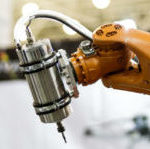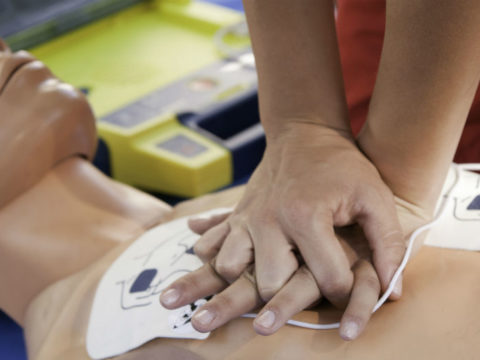


Artificial Intelligence: the next big trend in Life Sciences?

FIRST AID TRAINING IS VITAL FOR MANUFACTURERS
Accidents happen, but the manufacturing sector is exposed to a significantly higher risk of personal injury at work than other industries. Each year, around 3% of manufacturing industry workers suffers an illness they believe to be work related.
First aid is a vital skill in all workplaces, and its place in your manufacturing business’s office, factory or warehouse should not be underestimated.
Make the most of your staff Keeping your staff well-trained provides a vital first-line of defence against accidents and injuries. Employers are required to assess the hazards and risks of your workplace, and all staff should receive a full Health & Safety training to prevent accidents.
While not all staff members need to have undergone a First Aid course, you must ensure there are enough trained first aiders to help injured or ill employees.
Provide appropriate equipment There is evidence that the early use of an Automated External Defibrillator (AED) can lead to survival rates of 50-75% when used within three to five minutes, a far more beneficial outcome for the casualty than if that intervention is delayed.
When used alongside CPR, an AED provides an unresponsive person who is not breathing with the best possible chance of survival. With 30,000 people sustaining a cardiac arrest away from hospital each year, that’s one bit of kit which could well prove life-saving.
Follow the guidelines To prevent prosecution in the event of an incident, ensure your premises adhere to First Aid guidelines set out by the Health and Safety Executive (HSE). The Health and Safety (First-Aid) Regulations 1981 require employers to provide adequate and appropriate equipment, facilities and personnel to ensure their employees receive immediate attention if they are injured or taken ill at work. What is “adequate and appropriate” will depend on the nature of your work environment. If you are self-employed, you are required to ensure you have the equipment to provide first aid to yourself while at work.
Stay protected In the event of a workplace injury, the correct liability insurance offers vital assistance to both your business and the affected staff member. Employers’ liability insurance is a legal requirement, but that doesn’t mean it has to be basic – specific policies dedicated to the manufacturing industry can provide extra reassurance that accidents would be covered.
We can arrange manufacturing insurance to suit your business.
COMPETITION TIME
- tweet us @SafeguardMarine
- post on our Facebook page
- or email your answers to sales@safeguardinsurance.co.uk

